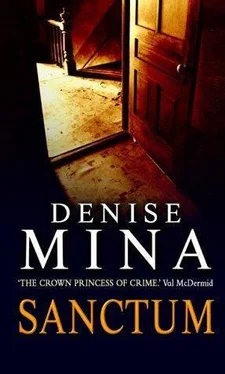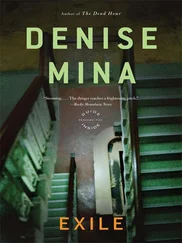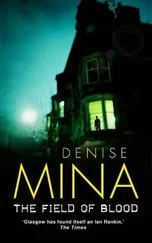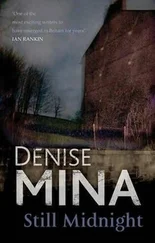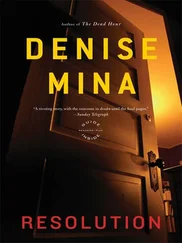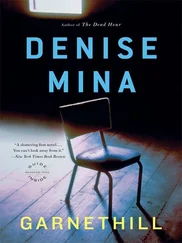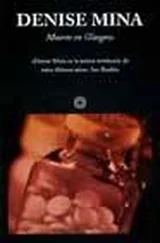He asks, “Do you?” His voice is as clear as mine. He’s sitting next to her now, facing the same way as her, and his larynx sounds compressed, as though he’s sitting back and is relaxed. They seem to be getting on quite well now. Susie’s flirting with him, and I can picture her leaning forward, sipping at her drink.
“No. [She sounds very sure.] That’s an insulting construction of masculinity. It’s a fearful construction. It’s focusing on the most appalling aspects of gender-stereotyped behavior and making it the core. Like passive-aggressiveness in women, or compulsive cleaning.”
I wonder why the interviewer didn’t mention this part of the conversation in his evidence to the court. Susie specifically says she didn’t find Gow attractive. Or she says she didn’t find the violence attractive. It could have a bearing on the appeal. I think it might be worth my bringing this to Fitzgerald’s attention.
“I need the loo,” Susie says on the tape. She seems to lean forward, letting out another tiny sigh, and the tape stops.
It starts again abruptly, and her voice sounds lighter because she’s had a break.
“These jail romances are very much an active search by the women for a partner within that community. If they’re approaching a famous prisoner, they’ll send an introductory letter, and if they get a response, they’re off and running with an imaginary love affair. The hubristophiliacs show themselves pretty quickly. They always ask for details of the crimes. The more benignly inspired correspondents can get all the way to a visit, but visits are fraught, especially first ones. If they turn up, they might not go in to the visit.
“If they do go in, they’re always surprised at the guy’s ordinariness. Once they discover that the man has a spark of humanity, say he likes dogs or his granny or collects stamps, well then, the visitors ascribe all sorts of lovely qualities to him. A woman goes in expecting Attila the Hun, minus the charm, and he is so much better than she expected. Mind-blowingly better. She’s awash with relief in his presence and she mistakes it for love. The impression that he is supernice isn’t contradicted by reality because they never live together and they rarely meet. It’s perfect for a fantasist: it’s a reality-proof romance.
“Of course, a lot of it is that they’re celebrities and that gives everything prisoners do a rosy glow, even brutal murders. Attaching themselves is a way for the women to achieve a higher social status. It may even be a way of committing vicarious murder. If they’re very angry and have contemplated murder themselves but haven’t done anything, it helps them understand the urge, helps them normalize and excuse it.”
Susie really knows what she’s talking about, but the interviewer doesn’t seem to be listening. “Are the letters any good?” he asks, “Or are they full of pervy stuff?” He sounds very smug and nasty and stupid and unthinking. I remember suddenly that he’s pals with Morris and may share his creepy attitude toward women.
“They’re private,” says Susie, squeaking across the leather settee. Away from him, I hope, and I want to kiss her for it. The journalist asks why Donna would have written to him in the first place. Susie can’t say for sure. I stop the tape and rewind. She makes this strange whung noise, and then her voice sounds higher. I wonder whether his hand is on her knee or something. I rewind again. She sounds odd but carries on talking. I’m sure she’d have said fuck off if he’d done something she disapproved of. It must just be the mention of Donna. When she says her name in the next sentence, her voice cracks, showing the strain.
“I think Donna identifies with Gow as a vilified figure, as an underdog, and feels that she, uniquely, can understand his pain. More pressingly, he fits the pattern of violent men she’s familiar with and attracted to. It’s smart really, if you think about it. She’s attracted to violent men, can’t resolve it, and so she reaches a compromise by choosing someone violent who happens to be imprisoned forever and can’t get to her.”
It doesn’t sound as if she hates Donna when they talk about her properly, but the journalist didn’t mention this bit of the conversation. I should ask Fitzgerald if he wants this tape. That journalist’s evidence was definitely prejudicial.
I turn off the tape, tip the chair back, and look up out of the skylight. Why would Susie think about prison marriages so much? It doesn’t happen that often. In all the time she has worked at Sunnyfields, only one other prisoner requested permission to marry, and the wedding fell through because the bride got drunk and took a weekend trip to Oban instead. But the books on the shelf have long indecipherable notes in the margins, whole paragraphs underlined, and she’s thought enough about Gow’s relationship with Donna to distill all that information and explain it in small sentences to a journalist.
The waiter comes back and puts some china down on the table. He states a price and thanks the man. The interviewer asks: “How can these women, like, get romantic with guys when they’ve done such, like, mad things to other women? What would you say to those people who’d say it’s all really pervy?”
He keeps saying that word, as if he thinks all sex is wrong. It makes me think he’s never had sex, or has no penis, or is sexually compromised in some giant way. But maybe it’s just that he’s sitting next to my wife in her sexy suit and I’m not and I dearly wish he had no penis, or at least wasn’t pals with Morris, who’s a bit of a cripple-dick himself.
“Overtly, none of the women believe their boyfriends are guilty. If the evidence is undeniable, they think up mitigating factors. But deep down, most of them know the man did commit the crime and that blood lust is enormously erotic to them. Even the religiously motivated ones are attracted to the violence. Think about it: that entire connection is contingent on the sinful behavior of the prisoner. They never target Social Security frauds, do they?
“In some way all the women who get involved with these men are religious really, all hoping to be that one special lady who changes him. They think if they make enough effort, are feminine enough, groom themselves, keep a clean house, they can make it work. What they don’t realize is the pattern is already set.”
Susie realizes that she’s rambling. She sits back and coughs, asks the interviewer if she should go on. There is a silence; perhaps he’s writing.
“Yeah… uh-huh… go on.”
“Well, you see, the solution to violent men isn’t to alter the stimulus; it’s to effect change in the actor.”
“You mean the women are being stupid?”
“No, no, no, it’s not stupidity. It’s much deeper than that. It’s a quasi-religious belief: be good and God will favor you. It’s redemption through another’s eyes.”
Even I’m cringing now. She’s obviously rehearsed that spontaneous observation and it comes out sounding hollow and stagy. I know she’s smirking as she says this last bit. I can hear her swallow another mouthful of drink, and I realize suddenly that she’s been drinking wine and is a bit tipsy.
“The men are blank canvases for them to imagine onto. It’s love blindness in extremis. But that’s true for all of us, isn’t it? Isn’t that what love is? Fantasy projection? Ignoring the facts until you’re too committed to get out.”
I CAN’T BRING MYSELF TO REPLY TO SUSIE’S LETTER. I COULDN’T say all the bland things she wants me to say: things are fine, I am well, much love, well done, get well soon.
What the fuck was she doing in Cape Wrath? I wonder about the details that don’t fit. If she did go up there to save Donna, why didn’t she phone the police when she saw Gow’s body? Instead of phoning the police, she went into the hotel and ordered a large whiskey. She was there for thirty-five minutes and didn’t alert anyone.
Читать дальше
